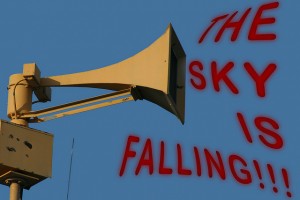WHAT HAPPENS IF THE FISCAL SESSION ENDS WITHOUT PASSING AN APPROPRIATION BILL FOR DHS-MEDICAL SERVICES?
 WHAT HAPPENS IF THE FISCAL SESSION ENDS WITHOUT PASSING AN APPROPRIATION BILL FOR DHS-MEDICAL SERVICES?
WHAT HAPPENS IF THE FISCAL SESSION ENDS WITHOUT PASSING AN APPROPRIATION BILL FOR DHS-MEDICAL SERVICES?
By David Ferguson
I was asked what happens if the supporters of the Private Option continue to hold the DHS-Medical Services appropriation hostage, and the Fiscal Session ends without an appropriation bill being passed. Some have suggested that there would be dire consequences. But that is just not the case. In fact, we have been down this road before in 2003.
- The General Assembly has another four months to reach a compromise. Appropriation acts are for the 12-month period beginning July 1. The current appropriation for DHS-Medical Services is effective through June 30, 2014. This means that there are four months in which to work on a meaningful compromise. The strategy of chipping away at the “no” votes has not been successful. So compromise now has more potential than it had even a week ago.
- A Special Session could begin as late as the last week of June and still have time to avoid a gap in DHS funding. Once a compromise is reached, a Special Session need only last three days. The three-day rule is in the Arkansas Constitution; otherwise the matter could be handled within a shorter time-frame. (See Arkansas Constitution Article 5, Sec 22.)
- A short Special Session could be held with only a minimal cost by scheduling regular committee meetings on those days. As you know, a Special Session with 0nly one issue does not take much time in a day. Therefore, there is plenty of time to have committee meetings on those days instead of another day that month.
- The General Assembly has been down this road before. In 2003, the Regular Session ended without passing appropriation bills for several agencies. Governor Huckabee called a Special Session in which the General Assembly passed sixty-two (62) appropriation bills and the Revenue Stabilization Bill without any funding being jeopardized.
- Some people have expressed concern that in a Special Session the Governor controls the items to be considered. Yes, the Governor’s Call determines what issues come up in a Special Session, but there should not be any negative effect in a Special Session to consider the DHS appropriation. The General Assembly has wide latitude in deciding what comes within the Governor’s Call Items. For example, in Arkansas Motor Carriers Ass’n, Inc. v. Pritchett, 798 S.W.2d 918, 303 Ark. 620 (Ark., 1990), the Arkansas Supreme Court upheld a law that was being challenged on the grounds it was outside the Governor’s Call. The courts said, “We have held the legislature may consider not only the legislation specifically mentioned, but such other as may incidentally arise out of the call and any necessary detail in accomplishing the purpose of the call. The legislature is given a wide range of latitude in deciding what comes within the call. Pope v. Oliver, 196 Ark. 394, 117 S.W.2d 1072 (1938).”
It is our hope that serious discussions will continue and that a solution is worked out this Fiscal Session. However, if the two sides do not get together this Fiscal Session– the sky is not falling. To put things in perspective, the four months until next fiscal year is about as long as the 2013 Regular Session lasted. And that Session produced 1,520 Acts.
